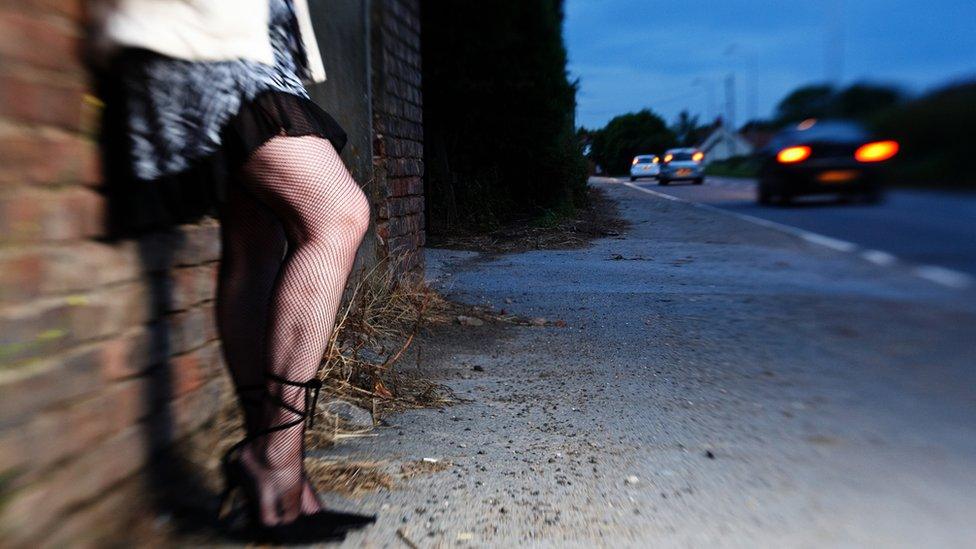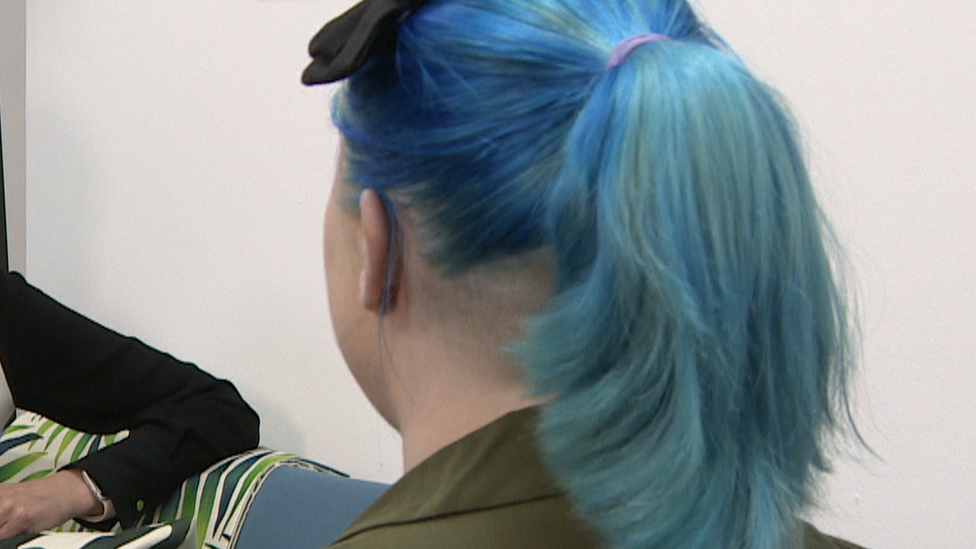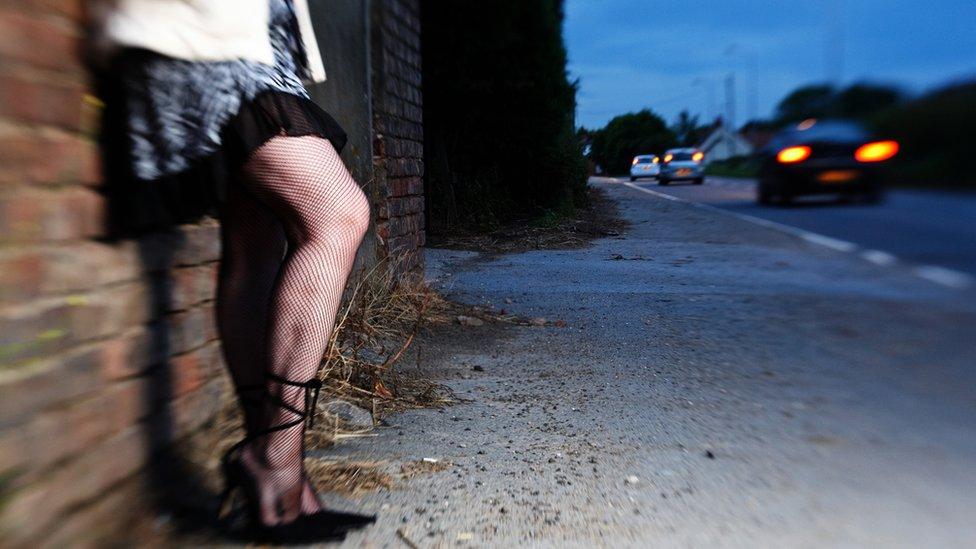Scotland's prostitution laws 'outdated and unjust'
- Published

The "Nordic model" decriminalises the sale of sex while targeting the buyers
Scotland's laws on prostitution are "outdated and unjust", an alliance of frontline agencies has said.
At present, soliciting in public, "kerb crawling" and brothel-keeping are illegal but running a pimping website or paying for sex are legal.
Campaigners want to shift the burden of criminality to those who pay for sex.
At May's election, the Scottish government pledged to develop "a model for Scotland" that challenged men's demand for purchasing sex.
The results of a Scottish government consultation on prostitution, external, published in June, said it wanted to "design future policies which fully support and protect women and girls".
Community Safety minister Ash Denham told BBC Scotland the government was committed to developing this "Scottish model" but there was no timeframe as yet.
Meanwhile, an alliance of frontline agencies are demanding more action from the government.
The agencies - including Tara (Trafficking Awareness Raising Alliance), the Encompass Network, Routes Out and Survivors of Human Trafficking in Scotland - want to "decriminalise" victims of sexual exploitation and wipe previous convictions for soliciting from their criminal records.

Community safety minister Ash Denham said the government was committed to a "Scottish model"
They want Scotland to adopt something similar to the "Nordic model", introduced two decades ago in Sweden, which decriminalises the sale of sex but targets the buyers of sexual services.
Supporters argue that it would make Scotland less attractive to traffickers, while targeting the demand for sex work.
However, some sex-workers' groups claim the policy increases the risk of violence and leads to a reliance on more dangerous customers.
They argue that full decriminalisation, better financial support and workers' rights would better serve those involved in prostitution.
'Hostile environment'
Mia De Faoite, an activist and survivor of prostitution who campaigned for Ireland to adopt the Nordic Model, told the BBC one of the main reasons for the need for reform in Scotland was the trafficking of women from places such as Eastern Europe for sex work.
She said the only reason women were trafficked to Scotland was that there were men who would pay for them.
The law as it stands has a "loophole" that traffickers can take advantage of, she said.
"The only way to stop the trafficking of women is to have 'end-demand' laws," she added. "You target demand and supply diminishes."
Ms De Faoite said there was no other industry that would tolerate the level of violence and exploitation seen among sex workers.
"Scotland has already acknowledged prostitution as a form of violence" she said. "It is time Scotland shifted the burden from the women to where it belongs, to the buyers."

Alice said the plans would bring more harm to people who were selling sexual services
However, one sex worker told BBC Scotland she wanted to see full decriminalisation of sex work.
Alice, not her real name, said she recognised the good intentions of the plans but felt they would bring more harm to people who were selling sexual services.
"If my client is criminalised it is going to be far more difficult for me to get them to send me 'screening' information," she said.
"I would not be able to get deposits or references, screening would become almost impossible because of the risks to the client would be so great they would be too anxious.
"If you criminalise the client you take away what little safety tools we have."
Alice, who sells her services online, said that criminalising the activity would push people back on to the streets instead of working from her home with clients that had been vetted.

Anastacia Ryan is against the Nordic model
Anastacia Ryan, of sex workers advocacy project Umbrella Lane, is also against the Nordic model.
Instead, she favours full decriminalisation, with wraparound support for women.
She said the plans would effectively criminalise sex work and increase the risk of violence.
"When you criminalise the purchase of sex all you do is drive the industry further underground," she said.
The community safety minister said the Scottish government needed to "take time to get it right".
Ms Denham said: "There are lots of international examples that we can look at and we would like to work on this."
She said she would like to work across parliament to build support for the Scottish model.
"I can't give you a timeframe at the moment but we are working on it and we are taking those steps now," she added.
- Published11 December 2020

- Published11 September 2020

- Published17 May 2020

- Published5 March 2019
